About the Department of Biology
Learn about our department faculty and program offerings. Explore the opportunities to apply your knowledge to the science that are closely related to our lives and environment.
- Home
- Departmental Directory
- Liberal Arts
- Department of Biology
- About Biology
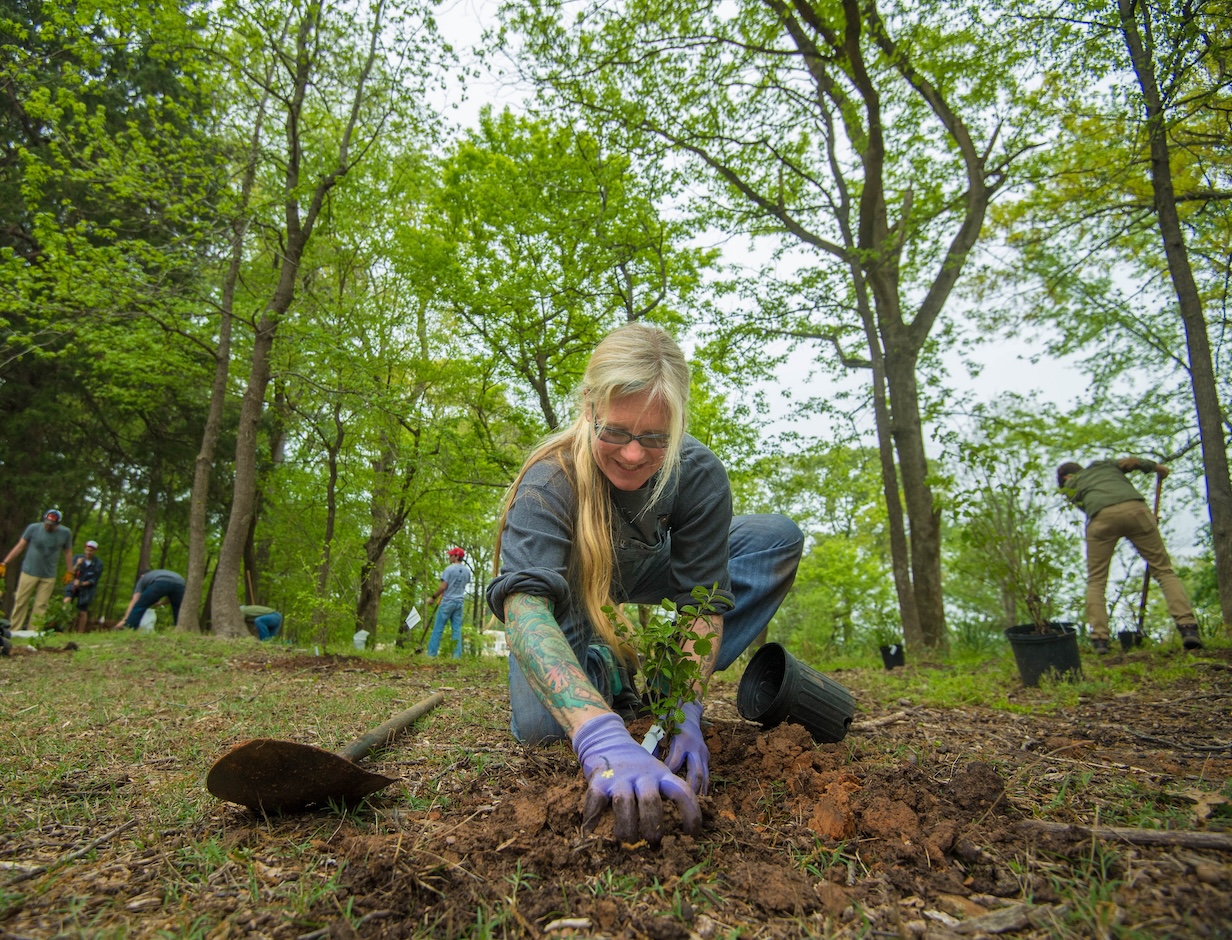
Department of Biology
Who We Are
The University of Mississippi is classified by Carnegie as an R1 university, a designation reserved for the top 2.5% of universities in the nation. As part of a research-intensive university, our faculty are at the top of their field.
Being at an R1 university matters for students because it means they will have professors who bring exciting new discoveries into the classroom and give students a chance to work alongside them as they break barriers.
Faculty research encompasses areas of biology ranging from cell and molecular biology to evolution to ecology. We have many areas of interdisciplinary strength, including symbioses and species interactions, restoration and conservation biology, behavior and neurobiology, biodiversity, microbiology, and freshwater/wetlands ecology.
A few of our faculty research projects include:
Dr. Josh Bloomekatz’s current research is supported by a grant from NIH entitled “Investigating collective myocardial cell movement during heart tube formation.”
Dr. Tamar Goulet's current research is supported by a grant from NSF entitled "Vision and Change in Undergraduate General Education Life Sciences Courses."
Dr. Erik Hom’s current research is supported by a grant from NASA entitled “Elucidating the Molecular Basis for Anhydrobiosis Using Biological Soil Crusts as a Model.”
Dr. Chris Leary's current research is supported by a grant from NSF entitled “Polyploidization, gene dosage, and the evolution of hormonal phenotypes.”
Dr. Michel Ohmer’s current research is supported by a Biology Integration Institute grant from NSF titled, “BII: Uncovering mechanisms of amphibian resilience to global change from molecules to landscapes.”
Dr. Mariel Pfeifer’s current research is supported by a grant from NSF entitled “Collaborative Research: Synthesis of the Barriers and Solutions in STEM Postsecondary Settings for Undergraduate Students with Disabilities.”
What We Do
The Department of Biology’s mission is to advance understanding of living systems through research and education. We are a highly collaborative department committed to education, mentorship, and research. We train our students to think broadly, use interdisciplinary approaches, and develop innovative insights into life science and biological processes.
What We Offer
UG
Use scientific methods to understand and predict natural phenomena in the world around us.
- Oxford
UG
Engage in the scientific study of living systems and all their complexities.
- Oxford
GRAD
Prepare yourself for a career teaching biology or participating in diverse fields of biological research.
- Oxford
GRAD
Learn to apply the principles of biology, advanced analytical techniques, and experimental methods to conduct groundbreaking research.
- Oxford
Our Vibrant Community
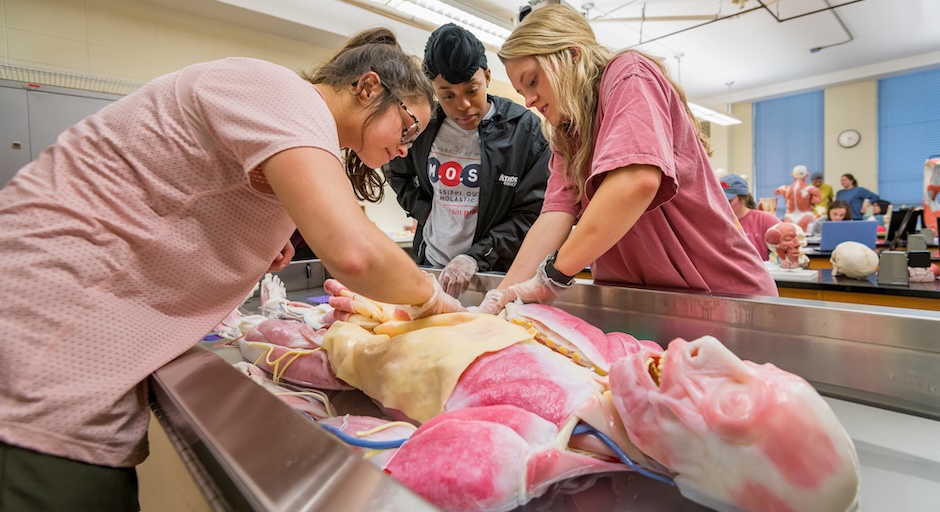
Students in Carol Britson's Bisc 310 Human Anatomy class examine “Gloria,” the synthetic cadaver.
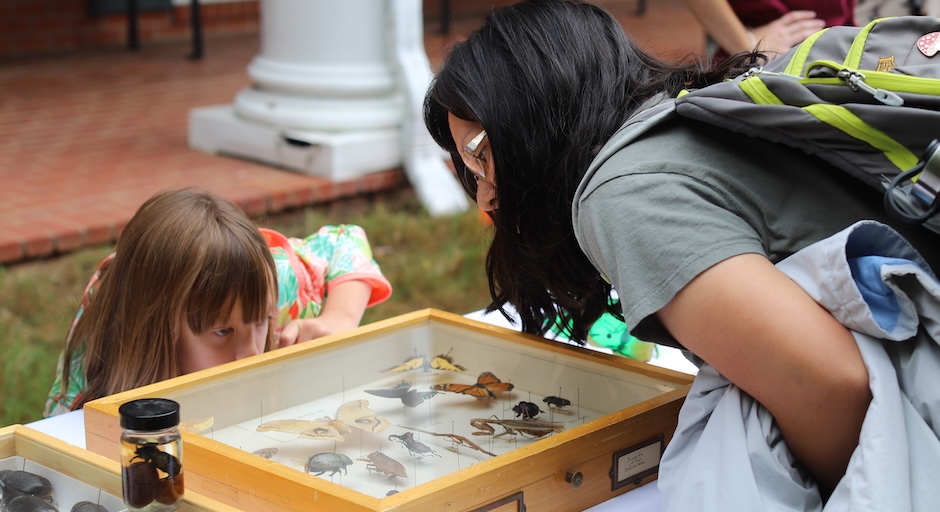
Oxford community members check out the biology table at the Neighborhood Nature event at the public library.
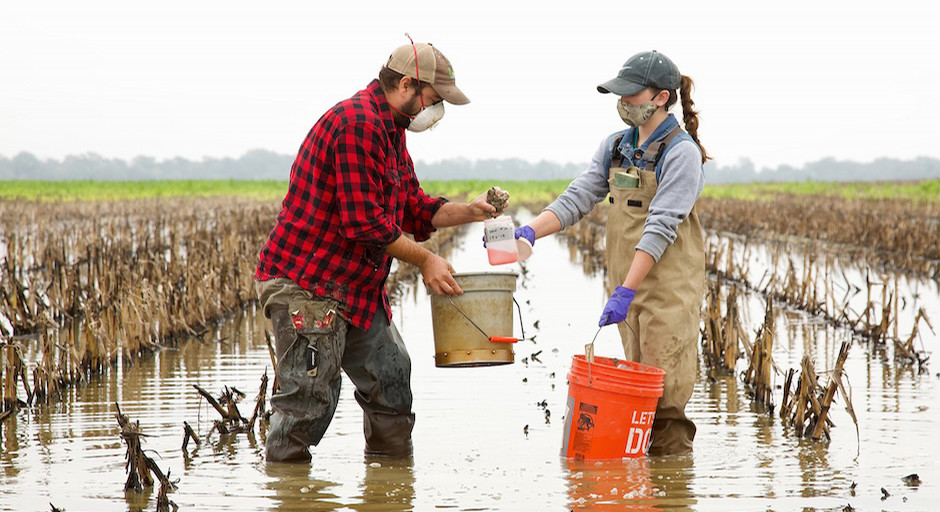
Biologist Pablo Bacon (left) and Rachel Anderson, a graduate of the UM Department of Biology, work with Mississippi Delta farmers to help wetlands.
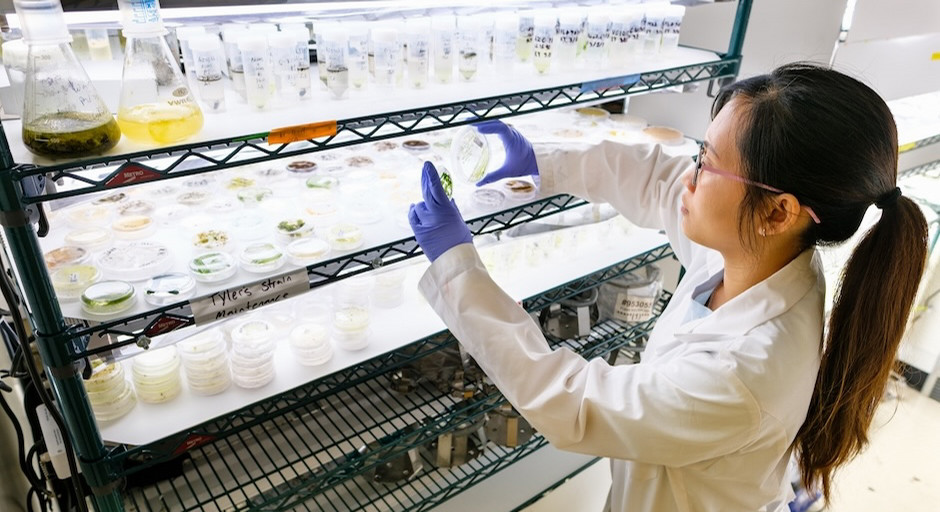
A biology graduate student does research on bacterial isolation from algae culture to extract anti-cancer drug.

Students fill up the newly opened STEM teaching building, Jim and Thomas Duff Center for Science and Technology Innovation, during a class change.
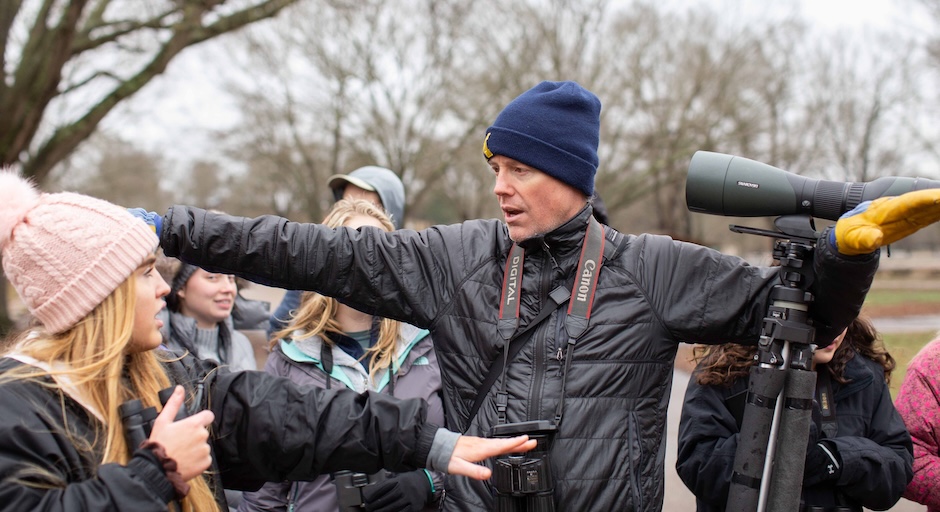
Jason Hoeksema's BISC 334: Ornithology class in the field.
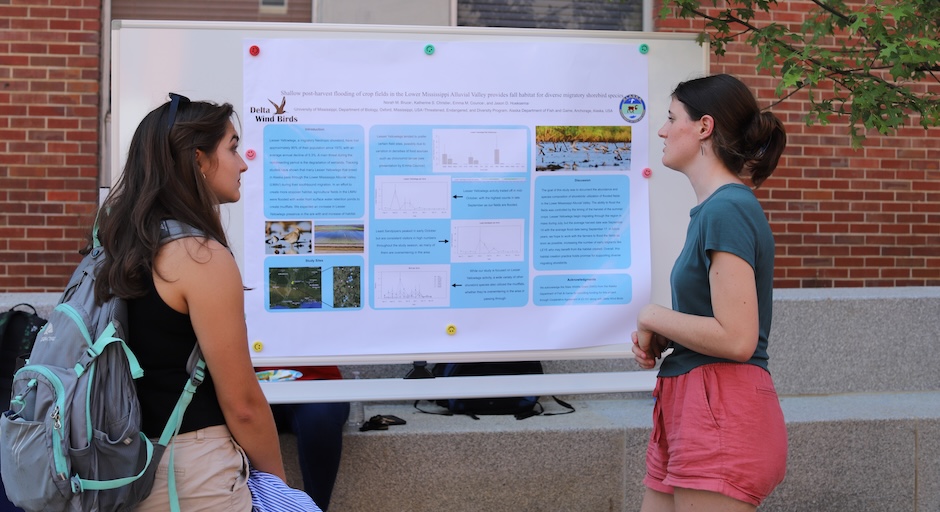
Undergraduate biology majors presenting research at a department showcase.
Welcome from the Chair
 If you are interested in biological sciences and want to make transformative changes in your lifetime, it is the perfect time to join the UM Biology family.
If you are interested in biological sciences and want to make transformative changes in your lifetime, it is the perfect time to join the UM Biology family.
In Shoemaker Hall, the home of UM Biology, we are a vibrant, diverse, and inclusive community of researchers, educators, and learners. We are excited to be part of the new 202,000 square-foot STEM building. This building is equipped with state-of-the-art instruments and technologies that revolutionize teaching and education and facilitate our mission to train life-long critical thinkers and future leaders.
Our research faculty are conducting frontline research in many areas of biology, including microbiology, symbiosis and species interactions, biodiversity and conservation, cell and molecular biology, physiology, neuroscience and behavior, as well as omics and systems biology. Their research has attracted an unprecedented level of extramural funding and created many research opportunities for students to actively participate in scientific discoveries and innovation.
Our goal is to form a close, uplifting community dedicated to supporting your academic journey, unleashing your potential and creativity, and helping you realize your dreams. We do this not only in the classrooms and research labs, but also in the broader public sphere, e.g., inspiring K-12 students to pursue science, joining forces with farmers for sustainable agriculture and food security, and working with citizen scientists to monitor and protect our natural environment. By educating tomorrow’s workforce for many different areas, such as human health, veterinary medicine, life sciences, forensic science, pharmacology, biotechnology, agriculture, environmental science, bioinformatics, and artificial intelligence, together we lift barriers, transform lives, and make our world a much better place for the generations to come.
Sixue Chen, Ph.D., Chair
Department of Biology
662-915-5871 | schen8@olemiss.edu
Department Leadership and Support
Sixue Chen
- Chair and Professor of Biology
Carol Britson
- Instructional Professor of Biology, Associate Chair for Undergraduate Studies
Ann Margaret Compton
- Academic Counselor
Jason Hoeksema
- Professor of Biology, Associate Chair and Graduate Program Coordinator
El Hopper
- Academic Counselor
Kordarius Parker
- Academic Counselor II
Gwen Rogers
- Operations Manager
Zach Tate
- Accounting Assistant
Zach Trest
- Operations Coordinator
Michelle White
- Administrative Assistant
Lance Sullivan
- Laboratory Technician II
Ecology, Evolution and Bioinformatics
John Brewer
- Professor of Biology
Richard Buchholz
- Professor of Biology and Director of the Center for Biodiversity and Conservation Research
Tamar Goulet
- Professor of Biology
Jason Hoeksema
- Professor of Biology, Associate Chair and Graduate Program Coordinator
Colin Jackson
- Professor of Biology
Christopher Leary
- Associate Professor of Biology
Brice Noonan
- Associate Professor of Biology
Marcos Caraballo-Ortiz
- Instructional Associate Professor of Biology and Herbarium Curator
Jonathan Lopez
- Assistant Professor in Freshwater Ecology
Sayaka Miura
- Assistant Professor of Biology
Michel Ohmer
- Assistant Professor of Biology
Becks Prescott
- Assistant Professor of Biology
Jason Taylor
- Associate Professor of Biology, Henry L. and Grace Doherty Chair in Freshwater Ecology, and Director of Center for Water and Wetland Resources
Molecular, Cellular, Organismal and Physiology Biology
Sixue Chen
- Chair and Professor of Biology
Lainy Day
- Professor of Biology and Director of the Interdisciplinary Minor in Neuroscience
Rob DeVries
- Instructional Assistant Professor of Biology
Mika Jekabsons
- Professor of Biology
Joshua Bloomekatz
- Associate Professor of Biology
Patrick Curtis
- Associate Professor of Biology (Microbial Physiology)
Ryan Garrick
- Associate Professor of Biology
Erik Hom
- Associate Professor of Biology
Bradley Jones
- Associate Professor of Biology
Sarah Liljegren
- Associate Professor of Biology
Peter Zee
- Associate Professor of Biology
Yongjian Qiu
- Associate Professor of Integrative Plant Biologist (Biology)
Wayne Gray
- Instructional Associate Professor of Biology
Education Research and Pedagogy
Sharday Ewell
- Assistant Professor of Biology
Tiffany Bensen
- Instructional Professor of Biology
Carol Britson
- Instructional Professor of Biology, Associate Chair for Undergraduate Studies
Beckie Symula
- Instructional Professor of Biology and Faculty Fellow for STEM Learning
Carla Carr
- Instructional Associate Professor of Biology
Mitzi Dunagan
- Instructional Associate Professor of Biology
Nicole Lewis
- Senior Lecturer in Biology and Coordinator of Laboratory Programs
Isis Arantes
- Instructional Assistant Professor of Biology
Carol Cleveland
- Instructional Professor of Biology and Active Learning Coordinator
Sobia Ilyas
- Instructional Assistant Professor of Biology
Lydia Lytal
- Instructional Assistant Professor of Biology and Faculty Fellow for STEM Learning
Tim Menzel
- Instructional Assistant Professor of Biology
Josh Schmerge
- Instructional Assistant Professor of Biology
Kate Wilwohl
- Instructional Assistant Professor of Biology
Parisa Burchfield
- Instructor in Biology
Laura McLellan
- Instructor in Biology
Millie Mulero Alegria
- Instructor in Biology
Saysha Sebren
- Instructor in Biology
Department Center and Program
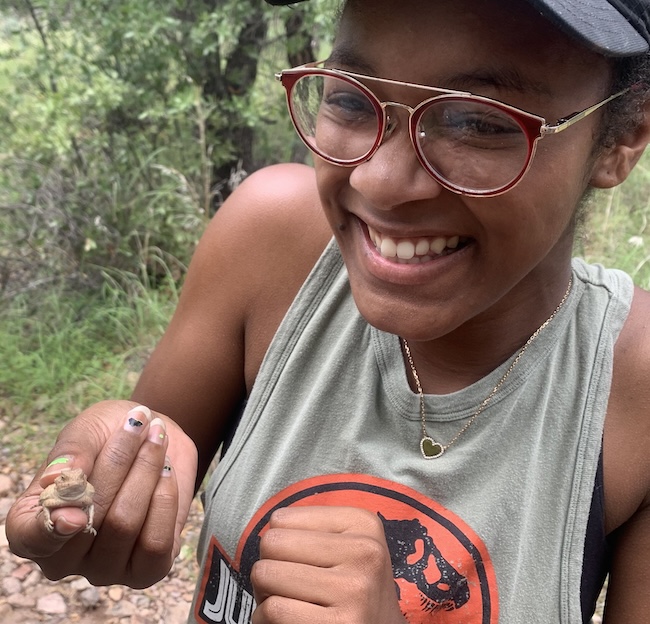
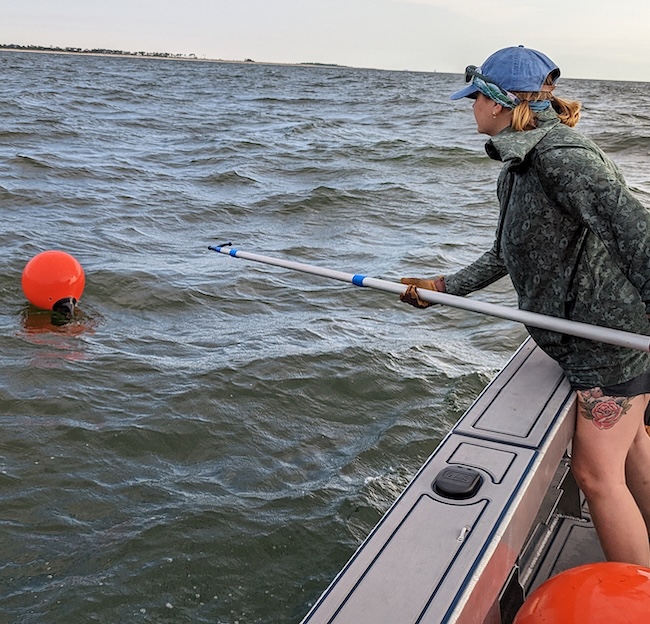
Center for Biodiversity and Conservation Research
The Center for Biodiversity and Conservation Research coordinates efforts among UM faculty and students and professional affiliates at governmental agencies and non-governmental groups to research, manage, and conserve biodiversity.
Our department also has outstanding research facilities such as our Imaging Core, our Molecular Core, the Pullen Herbarium, and the University of Mississippi Field Station (located 11 miles from campus and encompassing over 700 acres of forests, wetlands, and grasslands, as well as experimental ponds and streams).
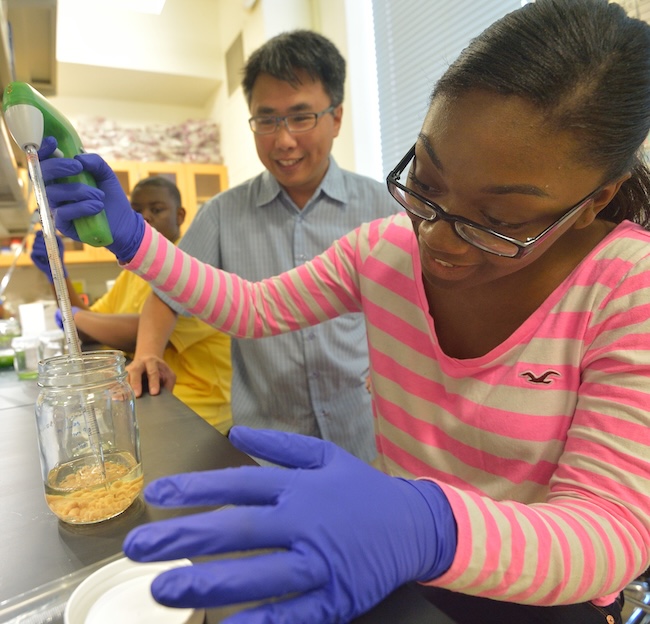
ARISE Summer Program
The ARISE summer program is a multi-pronged and multi-phased initiative aimed at improving STEM education and the pipeline of students pursuing STEM degrees in Mississippi. Participants will mix with a wide variety of students and faculty, realize the social context of scientific research, and experience both the thrill of scientific discovery as well as the day-to-day little steps.
-

Biology Research Facilities
The Department of Biology is located in Shoemaker Hall, and has teaching and research facilities both on and off campus, such as the UM Field Station (as pictured). Also, learn about ongoing research collaborations.
Research Facilities -
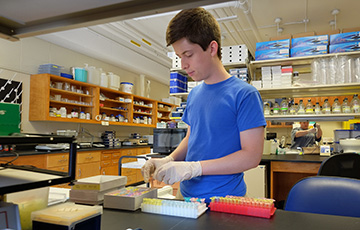
Graduate Students
Learn more about our current Masters and PhD graduate students and their fields.
View Biology Graduate Students -
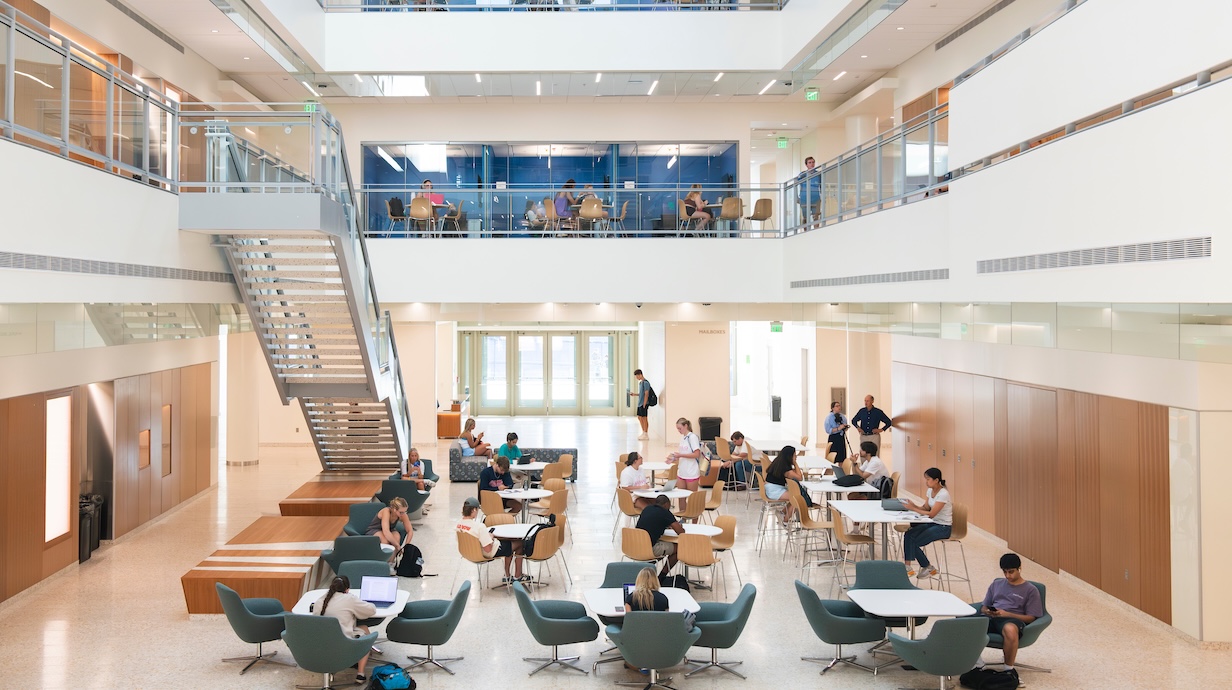
New Stem Building
The Jim and Thomas Duff Center for Science and Technology Innovation is a new academic building dedicated to STEM education. It has innovative lab spaces, classrooms, and student collaboration and study spaces. The Department of Biology teaches many courses, both at the introductory and advanced levels, in the new building.
The Jim and Thomas Duff Center for Science and Technology Innovation -

Biology History and Mission
Learn about the history of the Biology Department, starting with the first biology courses taught in 1872. See the current mission and vision for our students today.
History and Mission
Biology Emeriti
Meet the honorable faculty who have retired from the Department of Biology.
Name | Title | Name | Title | |
| Brian Doctor | Instructional Professor Emeritus of Biology | Professor Emeritus of Biology | ||
| Denis Goulet | Instructional Professor Emeritus of Biology | Professor Emeritus of Biology | ||
| Edmund Keiser | Chair Emeritus and Professor Emeritus of Biology | Professor Emeritus of Biology | ||
| Glenn R. Parsons | Professor Emeritus of Biology | Professor Emeritus of Biology | ||
| Paul K. Lago | Chair Emeritus and Professor Emeritus of Biology | Bailey Ward | Professor Emeritus of Biology |
Our Community

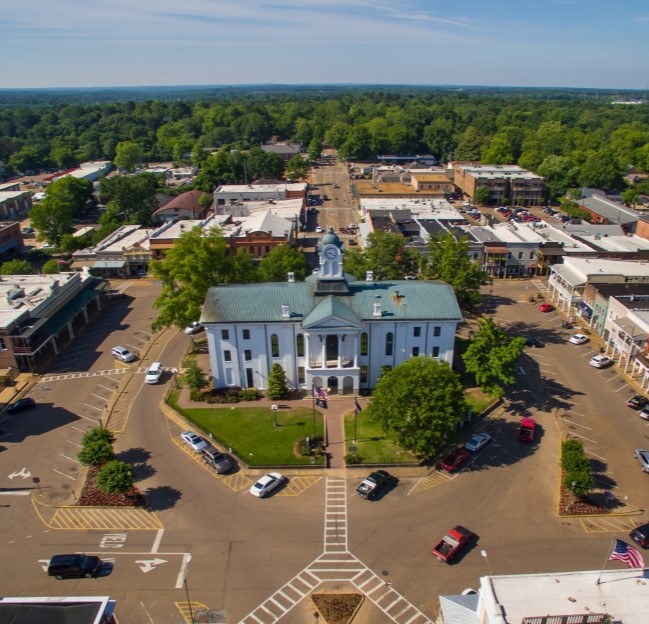
A Place That Ever Calls
Located 70 miles from Memphis and surrounded by the natural beauty of Northern Mississippi, Oxford boasts thriving music, art, and literary scenes along with great restaurants. University of Mississippi athletics provides many opportunities to watch and participate in sports—and one of the world’s best tailgating parties.
With everything Oxford offers, it’s no wonder USA Today names Oxford as one of the Top Six College Towns in the Nation.
Come see why.
